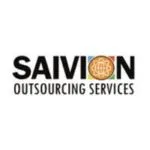
Top Salesforce Commerce Cloud Companies
Salesforce Commerce Cloud involves several key players. Salesforce itself provides the platform, a leading solution for online businesses. Implementation partners and agencies are crucial; they help businesses set up, customize, and manage Commerce Cloud. These companies offer services like implementation, integration, and ongoing support.
Global consulting firms (e.g., Deloitte) and specialized agencies assist businesses in leveraging Commerce Cloud to create seamless customer experiences. Ultimately, the platform is used by various businesses, from retail giants to fashion brands, to power their eCommerce operations.
List of the Best Salesforce Commerce Cloud Developers | Top Salesforce Commerce Cloud Companies in the World

-
Employees: 11 to 50
-
Min. Project amount: $10,000
-
Country: NY, USA

Cyber Nest
-
Employees: 11 to 50
-
Min. Project amount: $25-$49/hr
-
Country: NY, United States
-
Employees: 101 to 250
-
Min. Project amount: $10000
-
Country: Karnataka, India
-
Employees: 11 to 50
-
Min. Project amount: $1,000+
-
Country: Singapore

Telepathy Infotech
-
Employees: 51 to 100
-
Min. Project amount: $5,000+
-
Country: Casper, WY

Onex Software
-
Employees: 11 to 50
-
Min. Project amount: $10,000+
-
Country: İzmir, Türkiye

Saivion India
-
Employees: 11 to 50
-
Min. Project amount: $1,000+
-
Country: New Delhi, INDIA

SAT Microsystems
-
Employees: 251 to 500
-
Min. Project amount: $250,000+
-
Country: Jeddah, Saudi Arabia

Elite M Commerce
-
Employees: 101-250
-
Min. Project amount: Undisclosed
-
Country: NJ, United States

Ecom Buzz
-
Employees: 0 to 10
-
Min. Project amount: $1,000+
-
Country: Kolkata, India
1.What is Salesforce Commerce Cloud?
Overview: What is Salesforce Commerce Cloud?
Salesforce Commerce Cloud (SFCC) is a leading cloud-based eCommerce solution built to power enterprise-grade shopping experiences. It caters to both Business-to-Consumer (B2C) and Business-to-Business (B2B) brands, helping them launch, manage, and scale digital storefronts efficiently.
Designed for Modern Retail & B2B Needs
Salesforce Commerce Cloud supports the unique requirements of modern businesses by enabling flexible digital commerce solutions. Whether you’re selling directly to consumers or to other businesses, SFCC offers the tools you need to create personalized, engaging, and seamless customer experiences.
Key Features
AI-Powered Personalization
Salesforce Einstein, the AI engine, enables smart product recommendations, personalized search, and targeted marketing based on user behavior.Omnichannel Capabilities
SFCC unifies the customer experience across all touchpoints—web, mobile, social, in-store, and more—ensuring a consistent shopping journey.Scalable and Secure Infrastructure
The cloud-native platform ensures high availability, global scalability, and robust security to support growing traffic and transactions.Customizable and Developer-Friendly
It provides flexible APIs and integration capabilities, making it easy to connect with CRMs, ERPs, payment gateways, and other third-party tools.
Benefits for Businesses
Faster time to market with out-of-the-box features
Improved customer retention through intelligent personalization
Streamlined operations with Salesforce ecosystem integration (Sales, Marketing, Service Clouds)
Data-driven decisions via real-time insights and reporting.
2.What services do Salesforce Commerce Cloud companies provide?
Custom Store Design and Development
Salesforce Commerce Cloud companies offer custom eCommerce store design and development services tailored to your business needs. These services ensure that your online store is visually appealing, user-friendly, and optimized for conversions. The focus is on creating seamless shopping experiences that align with your brand’s identity and meet your business goals.
Salesforce Platform Integration (CRM, Marketing Cloud, etc.)
One of the primary benefits of Salesforce Commerce Cloud is its deep integration with other Salesforce products. Agencies specializing in Salesforce Commerce Cloud can integrate your eCommerce store with Salesforce CRM, Marketing Cloud, Service Cloud, and other tools to centralize customer data, improve marketing automation, and enhance customer service capabilities.
Third-Party App Integration
To expand the functionality of your Salesforce Commerce Cloud store, many Salesforce Commerce Cloud companies offer third-party app integration services. This can include payment gateways, inventory management systems, ERP solutions, shipping carriers, analytics tools, and much more, making your store capable of handling a variety of business needs.
Data Migration and Replatforming
For businesses looking to switch from a legacy platform to Salesforce Commerce Cloud, these companies help with data migration and replatforming. They ensure that all your customer, product, and order data are safely transferred to the new platform, minimizing any downtime and ensuring a smooth transition.
Performance Optimization and Ongoing Support
Salesforce Commerce Cloud companies often provide performance optimization services to ensure your eCommerce store is fast, reliable, and secure. This includes optimizing page load times, handling traffic spikes, and providing ongoing maintenance and support to keep the platform running smoothly, secure, and updated.
AI-Driven Personalization Using Salesforce Einstein
Salesforce Commerce Cloud companies also leverage Salesforce Einstein, the platform’s AI-driven tool, to offer personalized shopping experiences for customers. They implement features like personalized recommendations, predictive search, and tailored content, all based on customer behavior and data. This helps increase conversions and customer satisfaction.
3.Why should I choose a Salesforce Commerce Cloud agency?
Salesforce Commerce Cloud is a robust platform, but it requires specialized expertise to leverage its full potential. A dedicated agency brings valuable knowledge and skills to the table. Here’s why:
1. Deep Platform Expertise
Technical Proficiency: Salesforce Commerce Cloud has a complex architecture. Agencies possess in-depth knowledge of its features, functionalities, and best practices. They can handle intricate configurations, customizations, and integrations.
Strategic Acumen: Beyond the technical aspects, agencies understand how to align the platform with your business goals. They develop strategies to optimize the customer journey, drive sales, and enhance brand experience.
2. Customized Solutions
Tailored Approach: Agencies don’t offer one-size-fits-all solutions. They take the time to understand your unique business needs, target audience, and brand identity.
Bespoke Development: They can customize the platform to create unique shopping experiences, implement specific functionalities, and integrate with your existing systems.
3. Seamless Integrations
Ecosystem Connectivity: Salesforce Commerce Cloud works within a broader ecosystem, including CRM, marketing automation, and analytics. Agencies can seamlessly integrate these tools to create a unified customer experience.
Third-Party Integration: They can also connect your store with other essential third-party systems like ERP, payment gateways, and shipping providers.
4. Optimized Performance
Enhanced User Experience: Agencies prioritize creating user-friendly and engaging online stores. They focus on intuitive navigation, fast loading speeds, and mobile optimization.
Increased Conversion Rates: By optimizing the customer journey and implementing best practices, agencies can help you improve conversion rates and drive more sales.
5. Ongoing Support and Growth
Continuous Optimization: eCommerce is an evolving landscape. Agencies provide ongoing support, monitor performance, and suggest improvements to keep your store ahead of the curve.
Scalability and Growth: They can help you scale your online business and adapt to changing market demands.
4.How long does it take to launch a Salesforce Commerce Cloud store?
The development timeline for launching a Salesforce Commerce Cloud store typically ranges from 12 to 24 weeks. Several factors influence this timeline, including:
1. Number of Custom Pages and Features
The complexity and number of custom features or pages, such as custom checkout flows or personalized customer experiences, can significantly impact the development duration.
2. Integration Requirements
Integrating third-party systems like CRM, ERP, payment gateways, or marketing tools can extend the timeline due to the need for compatibility testing and custom development.
3. Content Readiness and Feedback Cycles
Content like product descriptions, images, and media must be finalized and organized before development. Additionally, the length of the feedback cycle between the client and agency will affect the overall project timeline.
4. Testing and Deployment Complexity
A rigorous testing phase is required to ensure the store functions smoothly, especially with customizations. The complexity of deployment, including data migration and security audits, can also impact the time needed before launch.
This timeline ensures that all aspects are carefully considered for a smooth and successful store launch on Salesforce Commerce Cloud.





